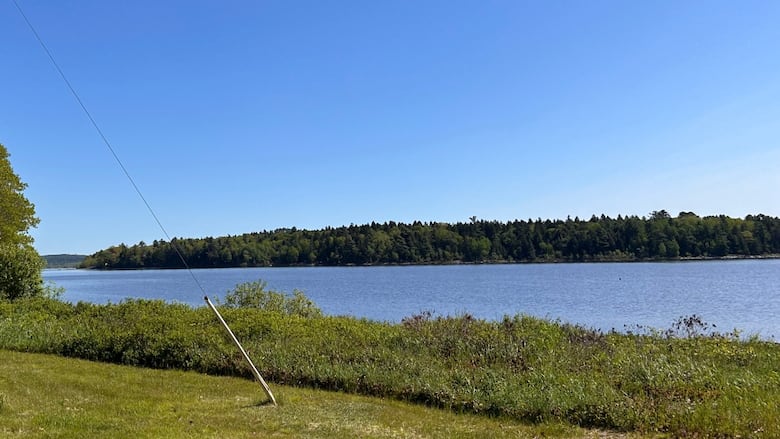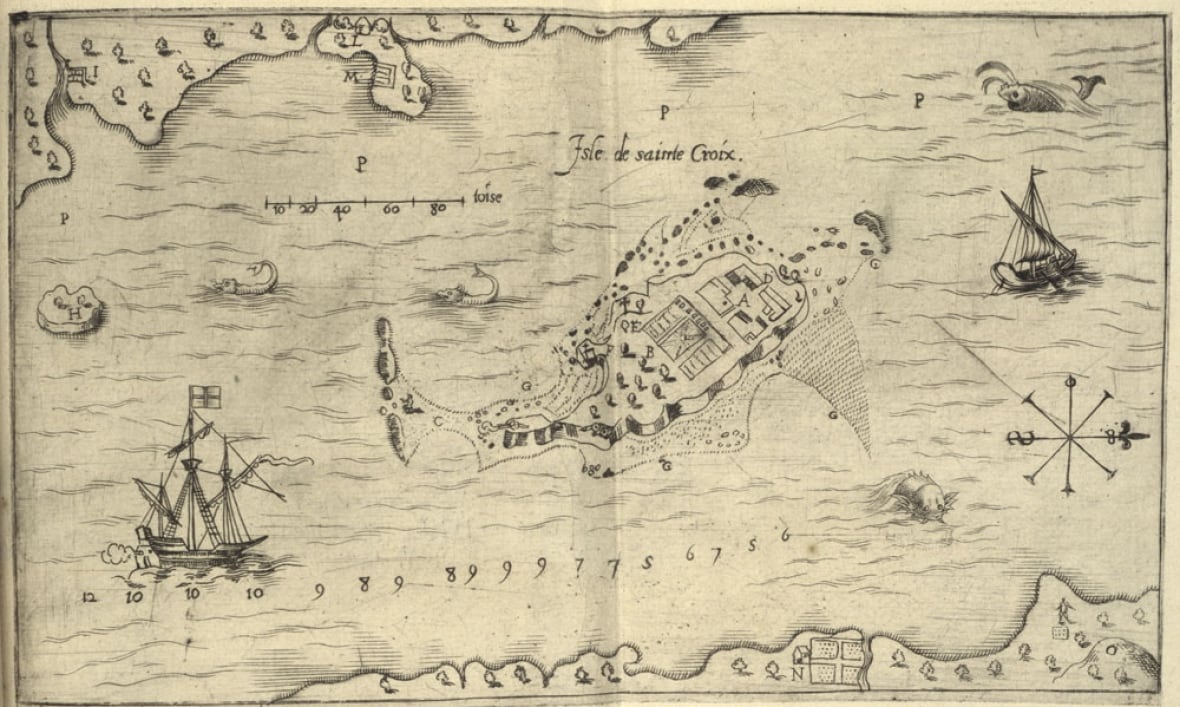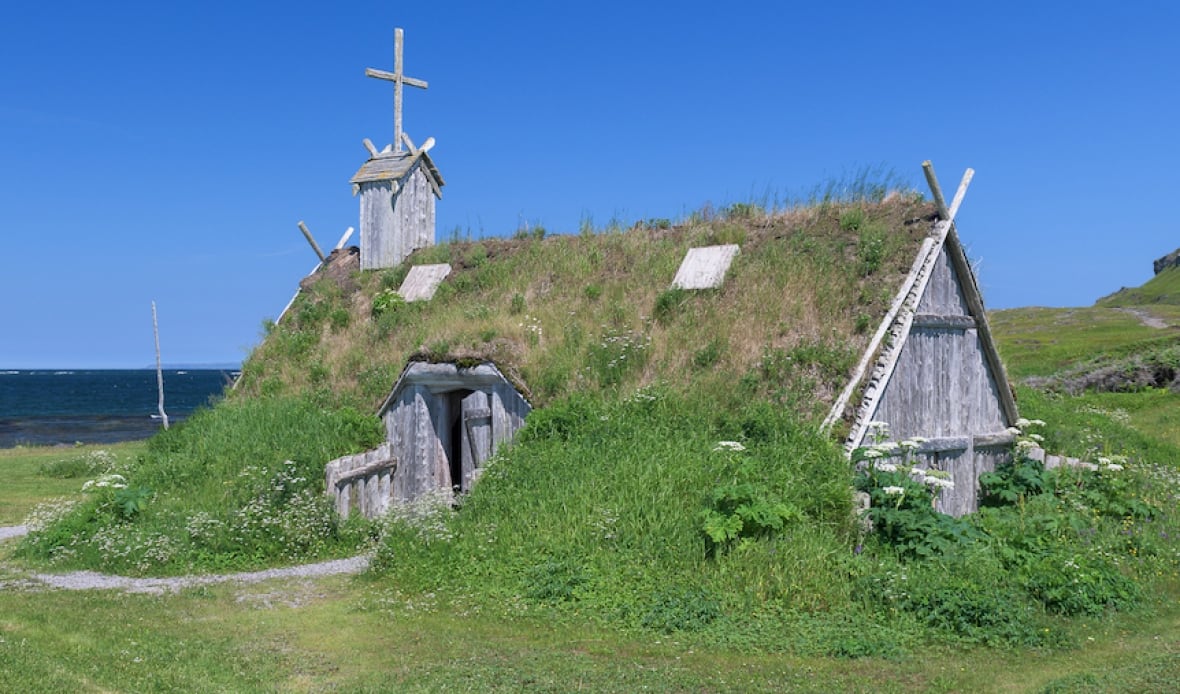Caton's Island: New Brunswick's 1st — or 3rd — European settlement
New Brunswick's complicated history of European settlement

The first Europeans set up shop in New Brunswick more than 400 years ago, that much is for certain.
Who they were, and where their first New Brunswick settlement was, that's a bit more complicated.
In 1610, Samuel de Champlain set up what's known as the first European settlement in New Brunswick on Caton's Island in the St. John River near Browns Flat — but that statement comes with a huge asterisk.
"There's some people that are probably pointing and yelling at their radios," said James Upham in a Roadside History segment on Information Morning.
There are a couple reasons for that reaction.
St. Croix
The first is the well-known fact that Champlain set up an ill-fated settlement on St. Croix Island in 1604, six years prior to the Caton's Island settlement.
But while St. Croix Island is an important part of New Brunswick's — and Canada's — history, the island is not in Canada.

"When you look at the map, it actually is, strictly speaking, a little closer to the United States side of the [St. Croix River]," said Upham.
It's not hard to see why most people would mistake St. Croix Island as the first New Brunswick European settlement. It's only about 500 metres away from being in the province, and the story behind the island settlement is way more interesting.

"They ended up kind of trapped on [St. Croix Island] for months and they didn't have enough food," said Upham.
"That's also potentially one of the reasons why we don't have a ton of information about [Caton's Island] ... because it wasn't horrible."
Scandinavian settlements
Caton's Island's position as the home of the first European Settlement in New Brunswick is complicated even further by the suspected movement of other Europeans further north 500 years prior.
"There's some really tantalizing suggestions that there may have been a Norse settlement … on the Miramichi Bay," said Upham.
We know the Norse did have settlements in North America, at L'Anse aux Meadows in Newfoundland and Labrador, and because butternuts were found at that site, people think the Norse may have made it to New Brunswick, as they're not native to Newfoundland.

Somewhere else
Or, maybe the first European settlement in New Brunswick was someplace else entirely.
It's possible that another settlement was founded by someone else and forgotten to history.
"[Europeans] have been poking around this area for potentially a good deal longer than we've really talked about a lot, because we don't necessarily have written records," said Upham.

"Was the first European community set up in this area? We actually just don't know."
Upham said until we get more conclusive evidence about Norse settlement in New Brunswick — plausible, he said — or the United States give St. Croix Island — not so plausible — to Canada, Caton's Island has the title of the first European settlement in the province.
With files from Khalil Akhtar